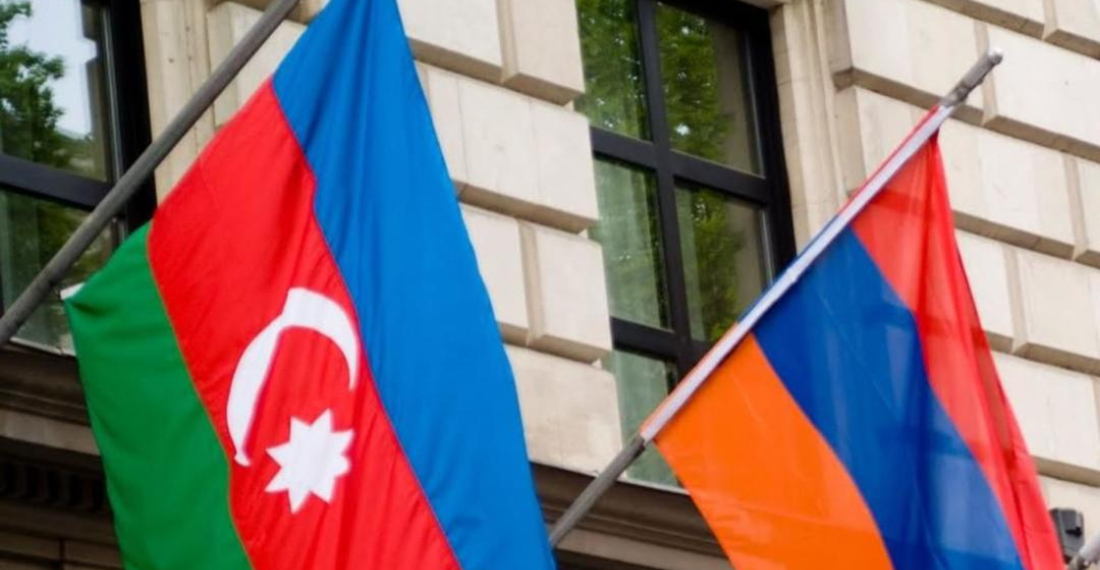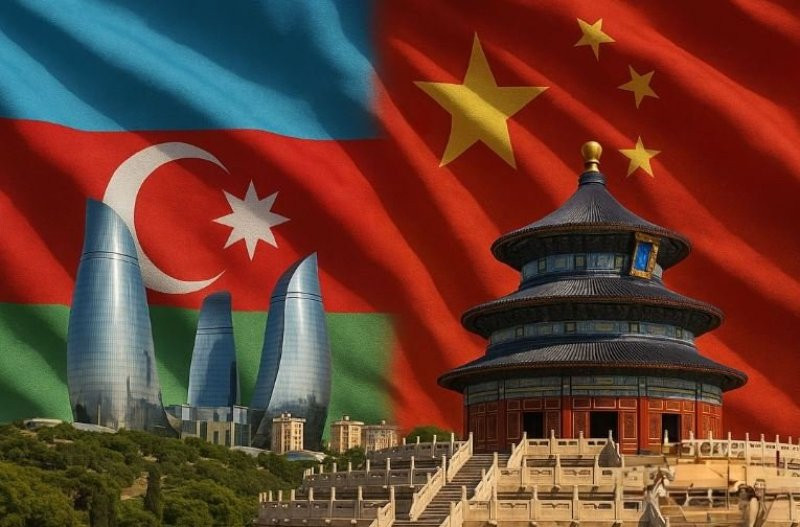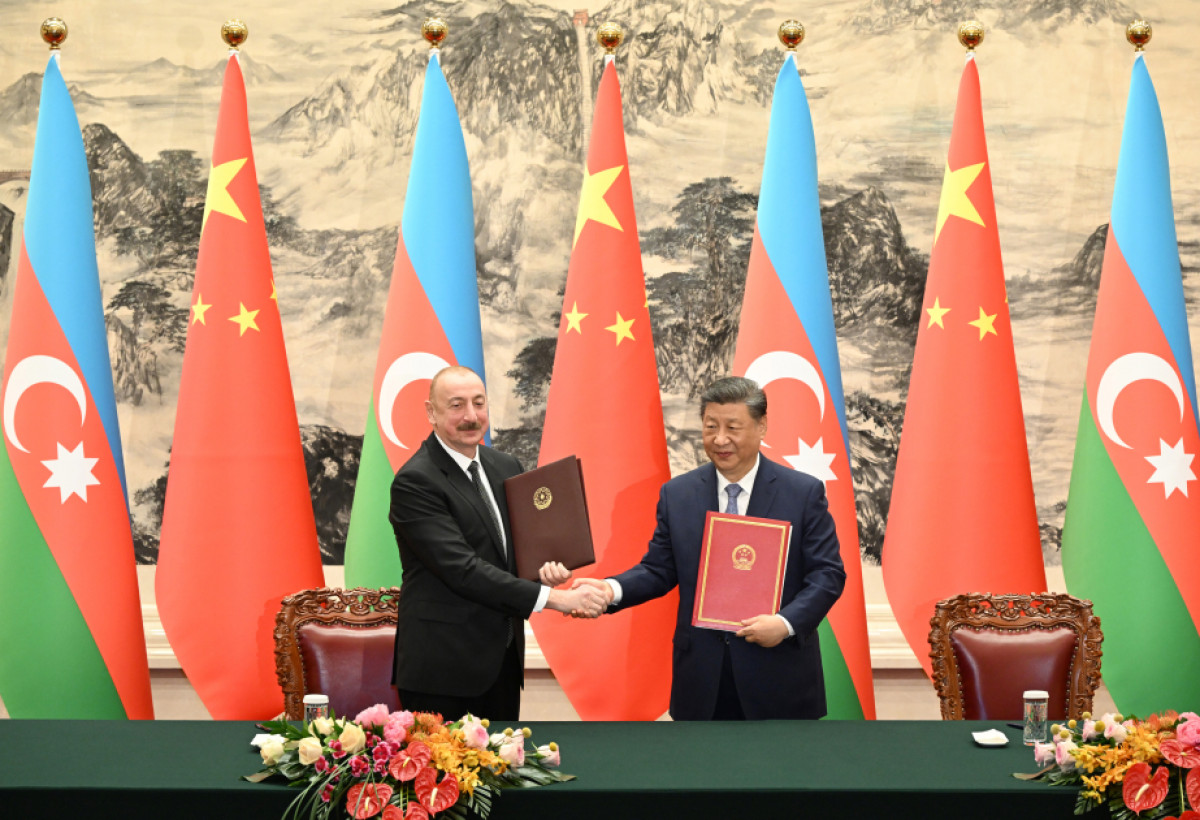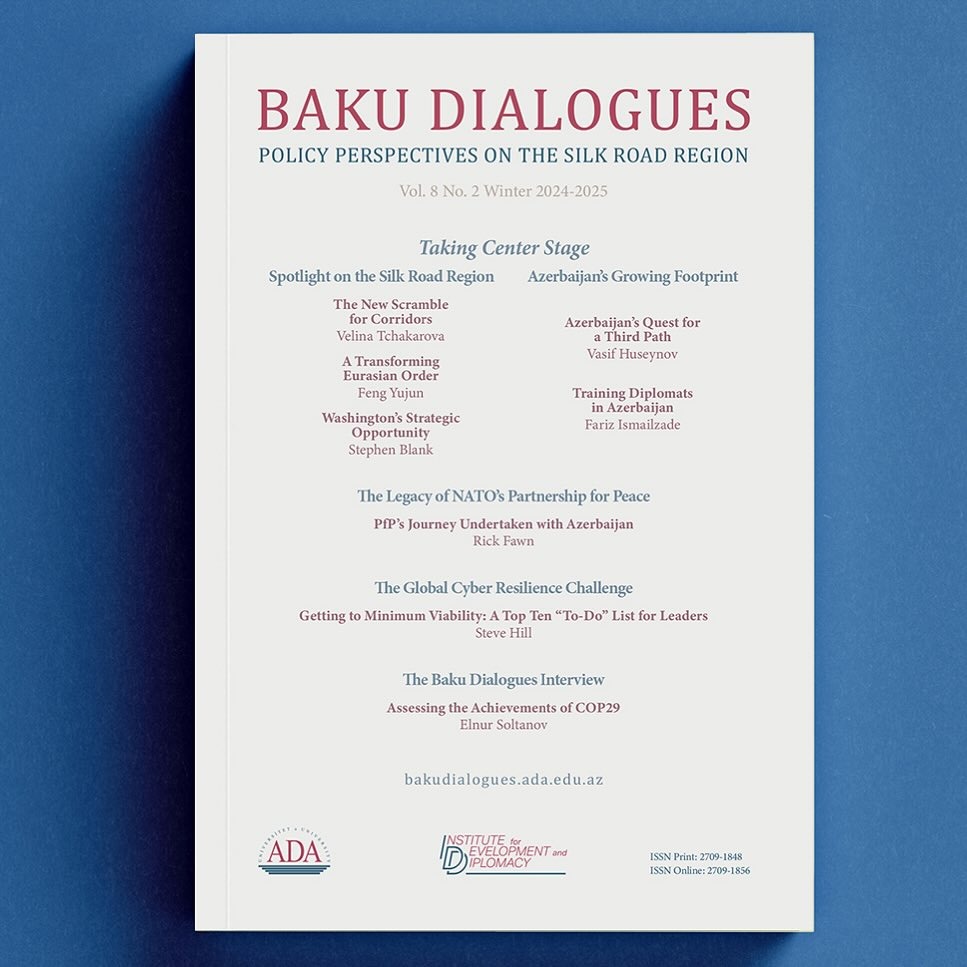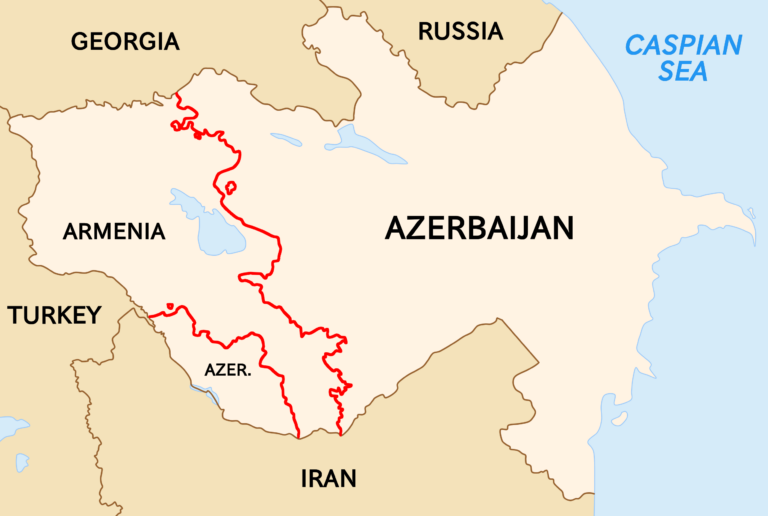On December 10, the Center for Analysis of International Relations (AIR Center), a Baku-based political think tank closely affiliated with the Azerbaijani government, held a high-level international conference titled “The Main Obstacle to a Peace Agreement Between Azerbaijan and Armenia.” The conference identified the territorial claims in Armenia’s constitution against Azerbaijan as the primary obstacle to peace.
Elnur Mammadov, Azerbaijan’s Deputy Foreign Minister, contributed to the discussion as keynote speaker, clarifying the position of the Azerbaijani government on the issue. The event also featured James Sharp, former UK Ambassador to Azerbaijan, and Židas Daskalovski, adviser to the North Macedonian president, who shared insights from their countries’ experiences in amending constitutions to resolve interstate disputes. Ambassador Sharp talked about the Good Friday Agreement between the United Kingdom and Ireland, which required constitutional amendments approved through referenda in Ireland. Onnik Krikorian, a British journalist of Armenian origin based in Tbilisi, Georgia as well as a contributor of Commonspace.eu, also addressed the conference, albeit virtually, and talked about the troubled experience of Armenia with constitutional referenda in the post-Soviet period.
The conference concluded that Azerbaijan is unlikely to sign a peace treaty with Armenia unless the latter removes references to its Declaration of Independence [from the preamble of the constitution], which calls for the unification of the Karabakh region with Armenia. Armenia is also expected to support Azerbaijan’s initiative to terminate the mission of the Minsk Group of the Organization for Security and Cooperation in Europe (OSCE), which used to coordinate peace talks between Baku and Yerevan but has become a defunct institution since the 2020 Karabakh War.
Alas, it is easier said than done. As Erkin Gadirli, a member of Azerbaijan’s parliament said at the conference, Armenia has put itself in a difficult situation when the Constitutional Court of the country ruled that the preamble cannot be amended. He referred to September 26, 2024 decision of the Armenian court, which ruled that “the Preamble of the Constitution… unavoidably amounts to the non-amendable provisions of the Constitution”. According to Gadirli, it is difficult to understand why the court has adopted such a decision instead of advocating for simply removing the reference to the Declaration of Independence from the preamble and as such putting an end to all these disputes about the constitution and making the signing the peace treaty possible.
The decision of the Constitutional Court has made a referendum on the constitutional change the only way to remove the territorial claims from the document. Although Armenia’s Prime Minister Pashinyan acknowledged the need for a constitutional change in Armenia earlier this year, this seems unlikely to happen before 2027. Quite the contrary, he now argues that the September 26, 2024 decision of the Constitutional Court of Armenia has invalidated the arguments of Azerbaijan.
On December 10, in an apparent response to the discussions within the afore-mentioned conference, Prime Minister Pashinyan posted on X claiming that “The Constitutional Court of Armenia, in its Decision dated Sept 26, 2024, noted that the reference to the Declaration of Independence in the preamble part of the Constitution pertains exclusively to those provisions of the declaration that have been enshrined in the articles of the Constitution”. This statement implies that the call for unification of Karabakh with Armenia in the Declaration of Independence of Armenia does not have constitutional relevance as it is not reiterated in the constitution per se.
This argumentation is plainly rejected by the Azerbaijani side. Elnur Mammadov, during his speech at the conference, explained that the position of the Azerbaijani government is caused by a deep mistrust in the future political trajectory of Armenia. Referring to the fact that the opposition groups in Armenia do not agree with the argumentation of Pashinyan and the ruling of the Constitutional Court, he said “it poses a risk of this document being nullified or being considered null and void from the very moment of it being signed, or in the future by any future government. So, it’s not a hypothetical risk. This is exactly what the revanchist opposition groups in Armenia are advancing as arguments against the government of Armenia.”
Thus, Azerbaijan insists that Armenia must amend its constitution before the two countries can sign a peace treaty. Onnik Krikorian, speaking at the conference and drawing on his on-the-ground experience with previous constitutional referendums in Armenia, noted that holding a referendum would be a politically challenging move. Given widespread public dissatisfaction with Pashinyan’s policies toward Azerbaijan, it is uncertain whether there would even be sufficient voter turnout for the referendum, let alone whether the public would vote to adopt a new constitution – thereby eliminating calls for Karabakh’s unification with Armenia.
This creates a significant deadlock in the peace treaty process, which, given the current situation, seems unlikely to be resolved in the coming year. The situation is further complicated by additional political and geopolitical challenges. These include Armenia’s refusal to terminate the Minsk Group’s mission, its reluctance to end the deployment of the European Union monitoring mission, and its hesitation to commit to a future obligation of not deploying third-party forces along the border with Azerbaijan. Compounding these issues are the ongoing disputes over the Zangezur Corridor and Yerevan’s refusal to open the corridor along the lines envisioned in the November 2020 trilateral statement.
Given these entrenched political, constitutional, and geopolitical challenges, it is clear that breaking this deadlock in the Armenia-Azerbaijan peace process will remain a formidable task in 2025. Without significant shifts in domestic and international dynamics, the prospect for meaningful progress toward a peace treaty appears less likely.

